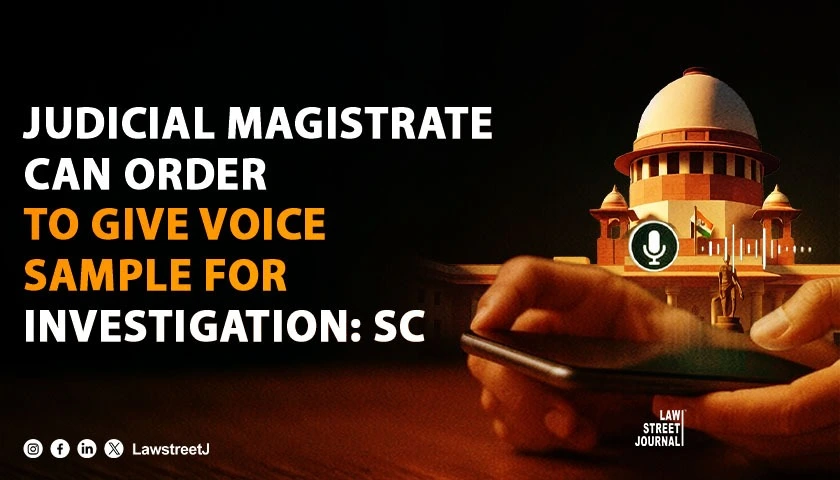NEW DELHI: The Supreme Court has said, despite absence of explicit provisions in CrPC, a judicial magistrate must be conceded the power to order "a person" including an accused and a witness, to give a sample of his voice for the purpose of investigation for a crime.
A bench of Chief Justice of India B R Gavai and Justice K Vinod Chandran said, in Ritesh Sinha Vs State of Uttar Pradesh & Anr (2019), this court had not spoken only of the accused and specifically employed the words ‘a person’ consciously because the rule against self incrimination applies equally to any person whether he be an accused or a witness.
An appeal was filed by Rahul Aggarwal against the Calcutta High Court's judgment which set aside the judicial magistrate's order to a person to give voice sample in case of extending threat to a witness in a criminal case, arising out of a death of a woman due to alleged harassment her family members, who alleged the father and other relatives of the deceased used to extort money.
Allowing the appeal, the court pointed out, previously, it was also directed that till explicit provisions are incorporated in the CrPC, the judicial magistrate will be so empowered by virtue of the said judgment.
The issue was also pending with the Government and with the advent of the BNSS, it has been specifically incorporated under Section 349, the bench said in its judgment.
"We need not hence consider the question as to whether it is the CrPC or the BNSS which would be applicable to the present case. If it is the CrPC, the three judge bench decision in Ritesh Sinha permits the same on the identical principle adopted by this court in Kathi Kalu Oghad (1961) to permit furnishing of handwriting, signature and finger impressions,'' the bench said.
The court highlighted the said sampling is similar to voice sampling, as now possible by reason of the advancing technology.
"If it is the BNSS that is applicable, then there is a specific provision enabling such sampling," the bench said.
The court explained the reasoning was also that mere furnishing of a sample of the fingerprint, signature or handwriting would not incriminate the person as such.
"It would have to be compared with the material discovered on investigation, which alone could incriminate the person giving the sample, which would not fall under a testimonial compulsion, thus not falling foul of the rule against self-incrimination,'' the bench said.
Disclaimer: This content is produced and published by LawStreet Journal Media for informational purposes only and does not constitute legal advice. The views expressed are independent of any legal practice of the individuals involved.

















